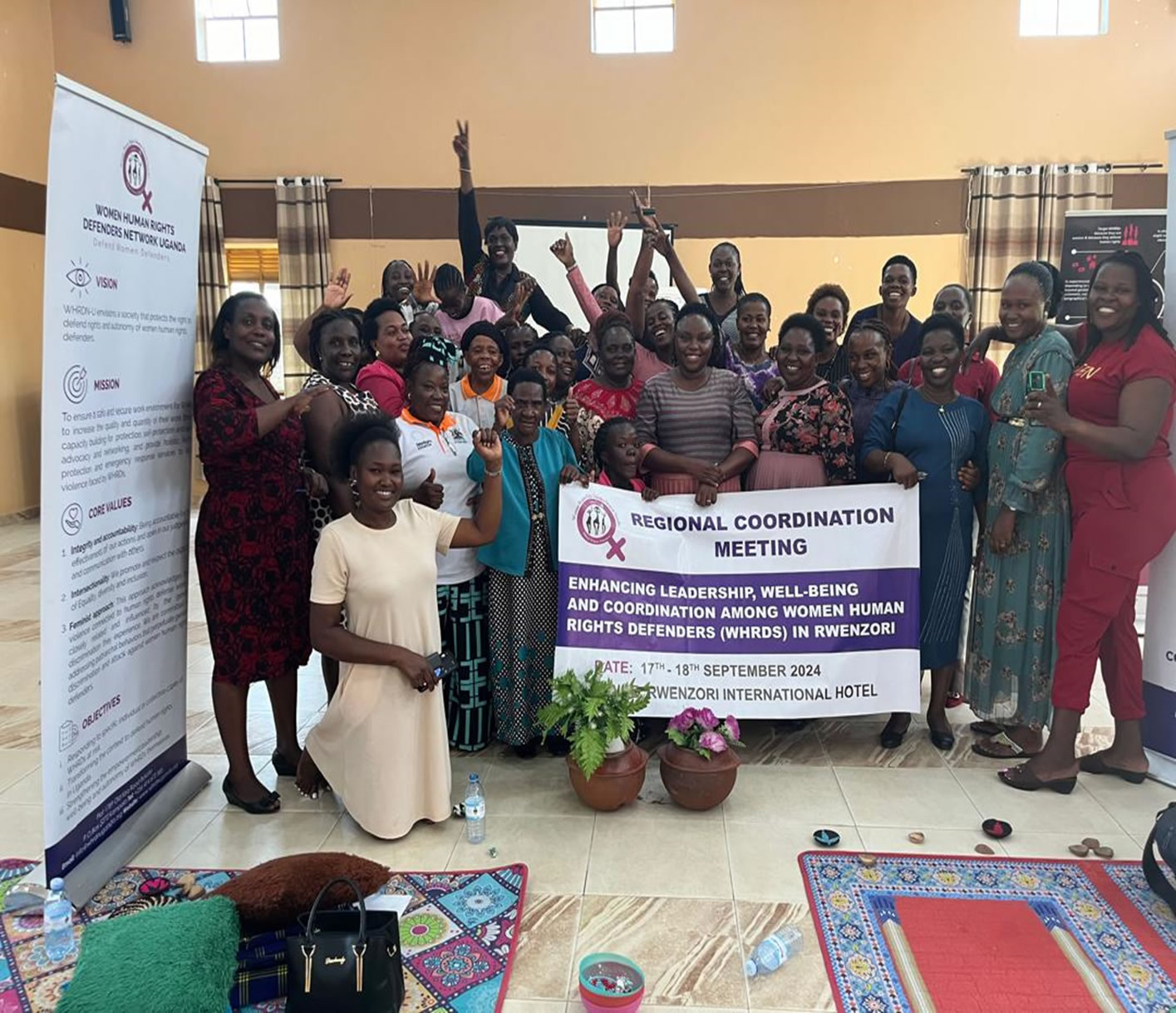In September 2024, 30 dedicated Women Human Rights Defenders (WHRDs) from the Rwenzori region gathered at the Rwenzori International Hotel in Kasese for a two-day coordination meeting focused on enhancing leadership, well-being, and collaboration. The gathering provided a much-needed safe space for these defenders to share their challenges, reflect on self-care practices, and strengthen their collective protection networks.
The meeting’s objectives were clear: create supportive environments for WHRDs to openly discuss their fears, challenges, and needs, and build solidarity across regions. These efforts were aimed at fostering stronger connections and trust among WHRDs while enhancing their ability to respond to the risks they face in their work.
Throughout the meeting, participants shared the unique difficulties they encounter in conflict and crisis situations, such as violence against women, child labor, and community insecurity. From cross-border conflicts to physical threats and social stigma, the WHRDs described the emotional and psychological toll of their activism. Despite these challenges, the defenders found strength in one another’s stories, forging bonds of sisterhood that are crucial for their continued work.
One of the most valuable sessions focused on self-care, which included activities like relaxation, socializing, and seeking guidance from peers. This initiative underlined the importance of maintaining mental and physical well-being amidst the intense pressures faced by WHRDs. Reflecting on these activities, participants expressed how moments of self-care and solidarity visits had significantly improved their emotional resilience.
Moreover, the meeting highlighted the importance of building protective networks. Through role-playing exercises, WHRDs learned how to mobilize support and respond quickly to emergencies within their regional network. The value of working together for mutual safety was emphasized, with the network serving as a collective safety net for those at risk.
While the meeting was successful in fostering collaboration, it also revealed challenges. Burnout, stress, and logistical barriers to effective coordination remain pressing concerns for WHRDs in the region. However, a commitment to ongoing mentorship, training, and capacity building offers hope for overcoming these obstacles.

As these defenders return to their communities, they are determined to continue their work with renewed strength, drawing from the solidarity they built during this meeting. They are already planning follow-up actions, such as radio shows, solidarity visits, and reporting cases of violations against WHRDs. These efforts are essential to ensure the safety, well-being, and continued impact of the WHRDs in the Rwenzori region.
